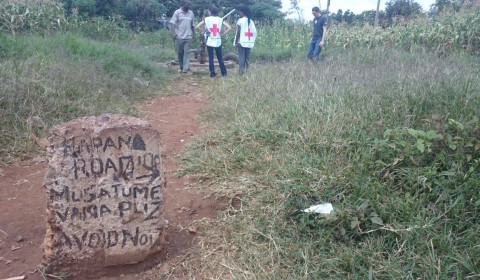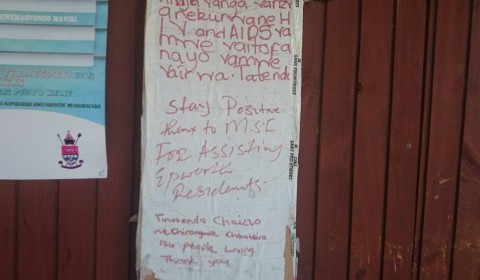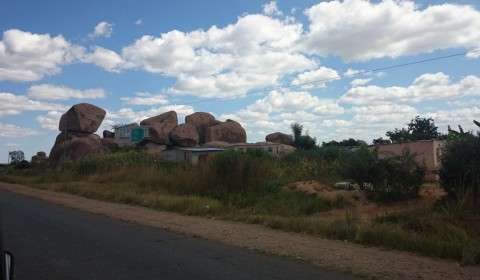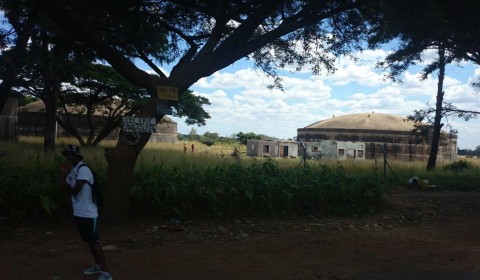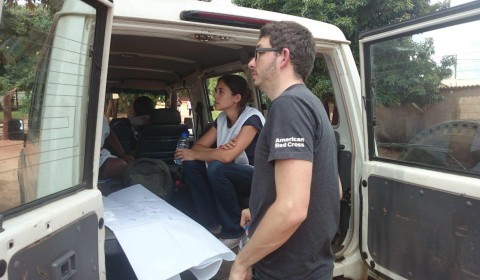I recently returned from a mission to Epworth slum, Harare, as a Field Mapping Co-ordinator with the Manson Unit’s Missing Maps project. Here’s a bit of my blog:
No wonder Rhodesia used to be known as ‘The Garden of Africa’. Epworth, a suburb of what is now called Harare (‘Salisbury’ in Rhodesian times), is a visually stunning landscape, but the beauty cloaks a menace. Boulders are piled deep into the geological ground, making boreholes difficult and drainage unthinkable. There is evidence of massive engineering attempts to install drainage abandoned by the roadside. And in the WatSan survey, we are managing to record all the water sources for the whole of Epworth, but to my knowledge, not a single drain. For half a million people. It’s an accident waiting to happen. But at least we now hope to have a significant resilience tool to bring to the crisis when it happens.
Missing Maps Project relies on the idea of The Open Platform, and is a collaborative inter-agency venture. ‘Armchair Humanitarians’ sit at home with an aerial satellite image, tracing lines of houses and compounds in oppressed, ‘at-risk’, disaster zones, making brand new powerful maps which are then filled-in, annotated, by their local counterparts in the field.
We have arrived in Zimbabwe on a wave of well-wishing and a map tool evolved by the ‘developed world’. It feels a bit like a victorian exploration, Speke or Burton, but Open Street Map is not development. Like early explorers, we think, we are bringing a secret from the northern hemisphere, but actually, rather than colonialism, it will actually resist commercial governance or colonisation. It is the creation of a map, yes, but not one that can be used or abused for financial gain. It is a community map. A bored London commuter and an african tribesman working hand-in-hand to produce a public resource which will save the world. ‘The geek shall inherit the earth’, a well-renowned webmaster friend of mine commented when she heard I was getting involved.
MSF has been active in Epworth for many years, and has seen the head count of those testing positive come down and, to some extent, under control. One of the main challenges with ongoing healthcare emergencies for MSF Zimbabwe is locating patients for ongoing treatment. There are a lot of unknowns. The official head-count is 145,000, but estimates or the real figure however, arrive at potentially 500-700,000. Epworth is a cultural hotch-potch, with a diverse immigrant population, living in a visually stunning but ‘excluded’ suburb. It’s a political timebomb, something of an embarrasment, and as such, this huge ‘missing’ population is subject to huge risks.
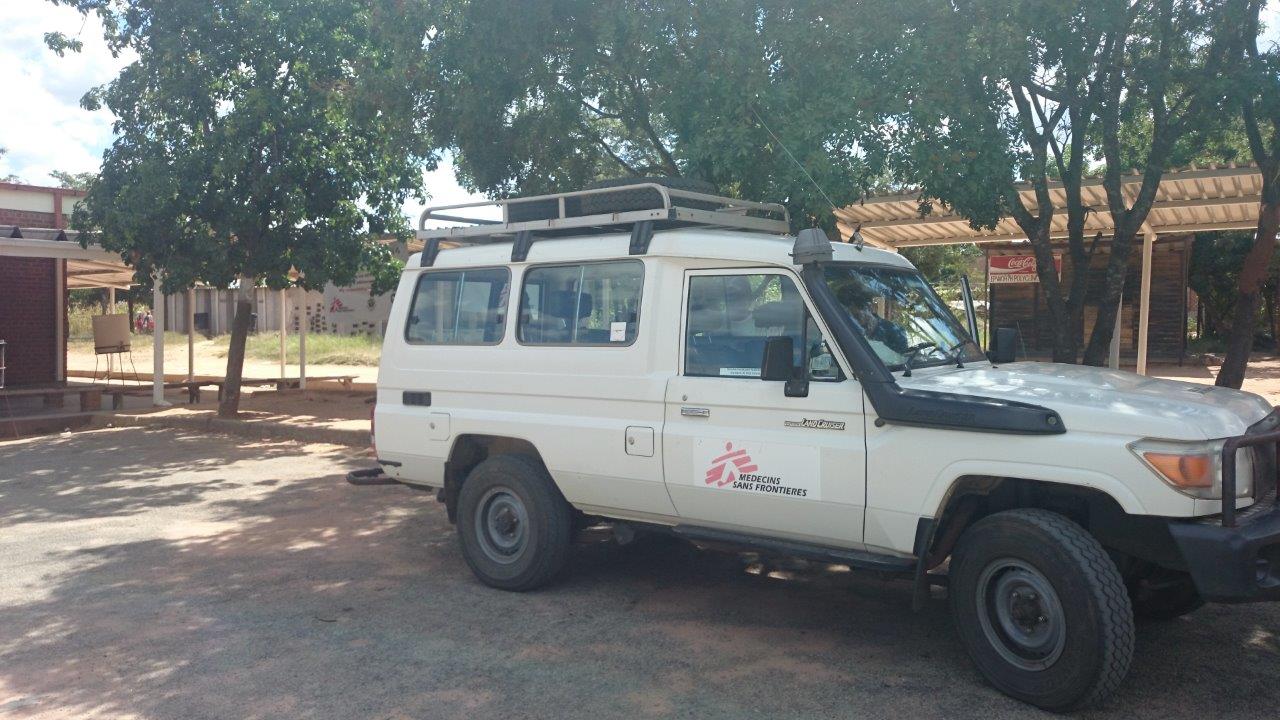
A map is certainly needed. Google Street Map cars have not visited perpetual war zones or areas of perennial pestilence and famine. Google can’t make money out of these places. So when disaster strikes, floods wash houses away, a cholera outbreak or epidemic happens or even houses get ‘tidied-up’ by politics or warfare, nobody has ever had a means of monitoring or assisting displacement or disease. Until now, that is. Enter; The Missing Maps project. It is easy to see the need for some kind of new way of registering Epworth’s existence to the world. So this is only the beginning of whether residents themselves want to be identified. A comprehensive centralised address system would clearly denote which houses were ‘unofficial’. Pejorative terms like this make all the difference in mapping, but this way, they own this identity. They can change it. We all own the map, as a community.
MSF are the envy of other NGOs for our contact on the ground, but our information, being in essence ‘Associative’, is locked within the memory of our people. On the plane to Zimbabwe, I watched ‘The Immitation Game’. Mulling over the trip, it got me thinking about codes. Missing Maps is there to create a new code, to put some of our institutional information into data, I reflected. In Epworth, as everywhere in the world, our strength lies in our National Staff. ‘Postcodes’ here are to do with, and protected by, folk memory. The MSF Community Health Workers carry this ‘code’ and enable patients to be traced and treated for multi-drug resistant conditions.
The impact of representational implied value has far-reaching implications. Mapping is an environment where words suddenly become political very very quickly. We have stumbled headlong into these kinds of politics in Harare and it has stopped us dead, but I am convinced that this particular community encryption can work in conjunction with de-centralised online social networks. It is wholly unreliable, legally and commercially, but absolutely life-saving for community resilience. From the core,it only works as in a co-operative way. Whilst there needs to be no consecutive geographical system to addressing, people can be in control of their own address, and, guess what: it can be cascade searched in the software of OSM!
It is really believed that Open Platform challenges the idea of those with the most financial clout having the loudest shout. For supporters of humanitarian efforts, it is a totally transparent and practical way of donating.
Here’s an observation I made half-way through our time in Harare: I am looking down a well next to the MSF Land Cruiser on the playing field of Maulana Primary School. There are 1631 pupils at this school, I am assured by the Principal, Mrs Maulana hereself. I look up from the well to her face in the sun, and wonder how such a young-looking woman can have founded this well-established school. Everything in the Epworth landscape seems well-established. Huge standing stones surround the ‘playing-field’. It is like a mega version of Stone Henge. A lunar landscape. You can buy twenty trillion Zim Dollar notes on the market for a fiver as souvenirs, which are decorated with these famous stones; the national monument. Ostensibly, this designated ‘slum’ should also be an UNESCU world heritage site. Maybe it is, but because of its uselessness for serious development because of its ‘rock-pile geology’, it has, ironically become over-settled by transients.
Certainly, what I had presumed to be a project ‘taking technology to the Africans’ is working out in a very different way indeed. In Epworth, people clearly accept the ‘ in development’ process so much more readily than the panicking idiot in front of them. As I instruct on Open Street Map, I look around me and see calmness in my companions as my computer crashes once again, or some piece of software proves ‘in development’. It has become very clear that I am not here to teach, but to learn. Whilst I tear my hair out wanting everything set in stone, these guys who are so used to unknowns are quietly busy fluidly learning yet another aspect of their future world, and rapidly turning into technicians who will soon outskill their overlords. The geek shall indeed inherit the earth. The African Geek, probably…
